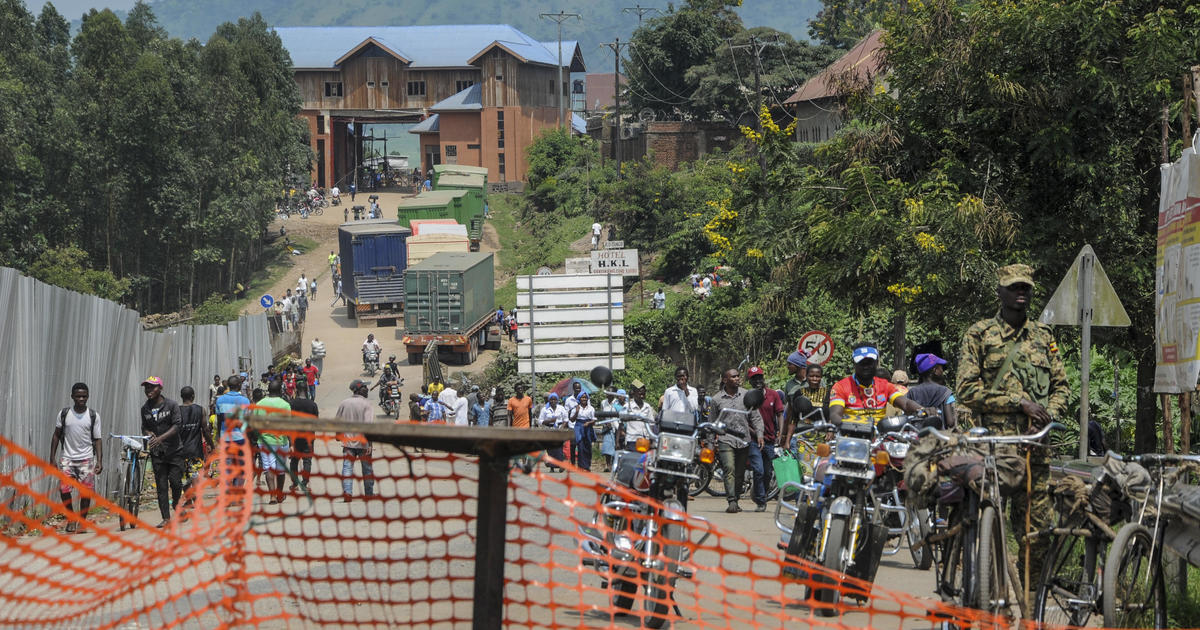Kampala, Uganda— The tragic incident in Uganda has resulted in the recovery of 41 bodies, including 38 students, who were brutally killed during an attack on a secondary school near the Congo border. The assailants, suspected rebels, burned, shot, or hacked their victims to death before fleeing into Congo. Additionally, six individuals were abducted during the attack. The victims include students, a guard, and two members of the local community. The mayor of Mpondwe-Lhubiriha, Selevest Mapoze, provided this information to The Associated Press.
According to Mapoze, some students suffered fatal burns as the rebels set fire to a dormitory, while others were shot or hacked with machetes. The attack took place around 11:30 PM and involved approximately five attackers, as reported by the Ugandan military. The soldiers who responded to the scene discovered the school engulfed in flames with the bodies of students scattered across the compound, said military spokesman Brig. Felix Kulayigye.
The military statement revealed a total of 47 bodies and eight wounded individuals receiving treatment at a local hospital. Ugandan troops are currently pursuing the perpetrators in efforts to rescue the abducted students who have been forced to transport looted food towards Congo’s Virunga National Park.
Authorities in Uganda have attributed the attack to the Allied Democratic Forces (ADF), an extremist group known for launching assaults from its bases in eastern Congo. The targeted school, called Lhubiriha Secondary School, is located in the border town of Mpondwe, within the Ugandan district of Kasese, approximately 2 kilometers (1.2 miles) from the Congo border.
Winnie Kiiza, an influential political leader and former lawmaker from the region, expressed her condemnation of the attack on Twitter. She emphasized that attacks on schools are unacceptable and violate children’s rights. Kiiza called for schools to be safe havens for all students, where learning, play, and growth can thrive.
The ADF has been linked to numerous attacks against civilians in remote areas of eastern Congo. Although the group rarely claims responsibility for its actions, its opposition to Ugandan President Yoweri Museveni has been evident for years. Museveni, who has been in power since 1986, enjoys security support from the United States.
The ADF originated in the early 1990s as a response to what some Ugandan Muslims viewed as marginalization under Museveni’s policies. During that time, the rebels carried out deadly attacks in Ugandan villages and even in the capital city. One notable attack in 1998 resulted in the massacre of 80 students in a nearby town. Eventually, the Ugandan military pushed the ADF into eastern Congo, where rebel groups operate with limited control from the central government.
In recent years, the ADF has established connections with the Islamic State group. The extremists have been responsible for multiple attacks, with a notable incident in March claiming the lives of 19 individuals in Congo. Ugandan authorities have made it clear that they will relentlessly pursue ADF militants, even outside their own territory. In 2021, Uganda launched joint air and artillery strikes in Congo as part of their efforts against the group.
Denial of responsibility! VigourTimes is an automatic aggregator of Global media. In each content, the hyperlink to the primary source is specified. All trademarks belong to their rightful owners, and all materials to their authors. For any complaint, please reach us at – [email protected]. We will take necessary action within 24 hours.


